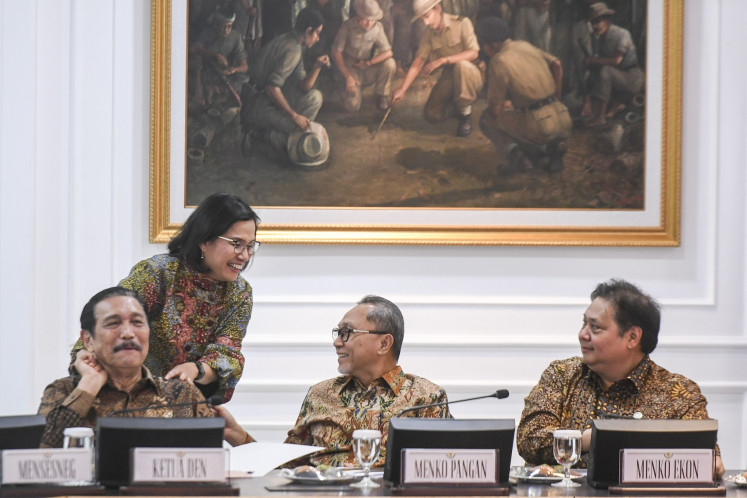Part 5 of 7 Enterprise governance: The Walker review
The Walker review of governance in the banking industry in the UK — which is also being keenly examined across the world — places considerable emphasis on the board’s role in strategy and risk
Change text size
Gift Premium Articles
to Anyone

T
he Walker review of governance in the banking industry in the UK — which is also being keenly examined across the world — places considerable emphasis on the board’s role in strategy and risk.
For example, Walker points out that when the board is discussing major strategic and risk issues, it is essential that there is a disciplined process of challenge.
He also recommends that ‘board-level engagement in the high-level risk process should be materially increased’ with particular focus on the entity’s risk appetite and tolerance.
Another related area is stress testing — boards are urged to ensure that they ‘understand the circumstances under which the entity would fail and be satisfied with the level of risk mitigation that is built in’.
While the Walker review is aimed at the banking sector, these specific recommendations are good advice for any global organization.
Still, many lessons can be drawn from the actions of the board at RBS and other businesses.
The review by Sir David Walker, who headed a government enquiry into corporate governance in UK banks and other financial entities, concluded:
Principal deficiencies in boards related much more to patterns of behaviour than to organizations. The right sequence in board discussion on major issues should be: 1) presentation by the executive; 2) a disciplined process of challenge, 3) a decision on the policy or strategy to be adopted; 4) and then full empowerment of the executive to implement.
All this will call for a material change of culture in some cases so that disciplined, but rigorous, challenge on substantive issues comes to be seen as the norm and inability or insufficient strength of character to participate will throw into question the continued suitability of a particular board member...
Appropriate balance will only be achieved where the executive expects to be challenged, but where the board debate surrounding such challenge is conducted in a way that leaves the executive team with a sense of having drawn benefit from it.
Non-executive directors and the boards of which they are members need to find the right point on the spectrum, which ranges from relatively unquestioning support of the executive at one end to persistent and ultimately unconstructive challenge at the other.
The greater the entrenchment of the chief executive, the greater the importance of challenge, especially if he or she is believed to face or tolerate little challenge from within the executive team and is unreceptive or inaccessible to critical input from any other source.
The chairman of the UK Financial Services Authority, Lord Turner, has stressed how important it is for banks to obtain an external challenge to assumptions based on conventional wisdom.
Yet there needs to be a description of a ‘challenge culture’, within boards and beyond, and a map for how a company can create such a culture.
Recent guidance from the Institute of Chartered Secretaries and Administrators (ICSA) suggests that best practice boardroom behaviour includes:
• Questioning of assumptions and established orthodoxy
• Challenge that is constructive, confident, principled and proportionate
• Rigorous debate
In the wake of the failures in corporate governance that led to the global downturn, CIMA believes that businesses should integrate long-term sustainability into their core activities.
In setting the ethical direction of an organization the tone must come from the top — that is from the executive and non-executive board directors.
A key responsibility of the non-executive directors is to uphold values that put the long-term future of an enterprise above short-term profits.
This also entails management providing non-executive directors with the most relevant and accurate management information available, data which would help the board identify if the company is cutting corners ethically to get quick returns.
CIMA’s boardroom leadership model suggests key ingredients to create a climate in which constructive challenge of the CEO is possible.
High quality management information.
Diversity in skills, perspectives and experience.
Mutual respect among players. There needs to be an understanding and acceptance on all sides that constructive challenge is vital.
Robust processes and frameworks to support strategic development.
It is difficult to challenge strategy if the board agenda does not allocate enough time to discuss strategy.
Boards may find other devices useful, such as designating someone to play devil’s advocate for a particular discussion.
These conclusions are consistent with CIMA’s enterprise governance philosophy which it has promoted in recent years.
This emphasises the need for organizations to balance both conformance and performance issues.
So while compliance with legislation and standards is crucial, organizations must never lose sight of
the need to ensure long-term sustainable success through effective performance.
Following our original enterprise governance case study research earlier corporate failures such as Enron and WorldCom, we too identified that board oversight of strategy and risk were key areas that required attention.
It seems a shame that these lessons were not taken on board fully and that it has taken further major corporate crises to reinforce the need to improve practice in these areas.
The writer is CIMA Enterprise Governance Specialist. For more information about CIMA, please visit www.cimaglobal.com.









